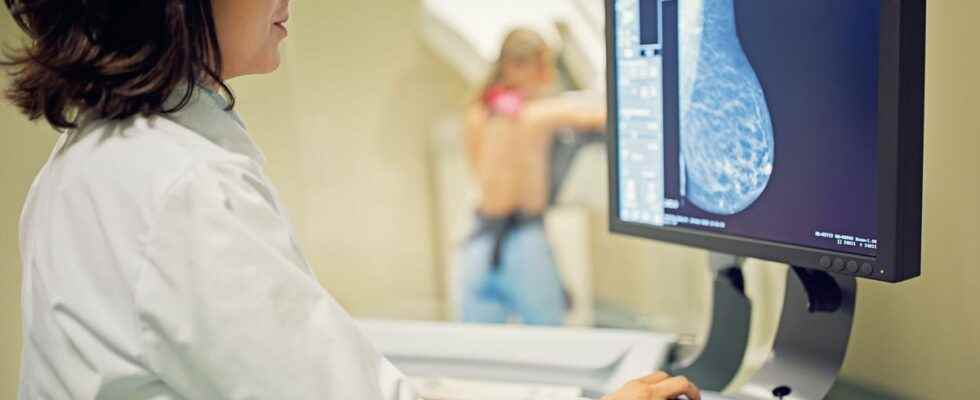Published on
Updated
Reading 3 mins.
The Institut Curie has proven it: an algorithm based on artificial intelligence would be able to diagnose more or less rare breast cancers based on the simple study of digitized biopsy images. And this with as much precision as the eyes of expert pathologists.
This is an innovation that will undoubtedly be a landmark in breast cancer research. For the first time worldwide, an algorithm based on artificial intelligence has been clinically validated for the diagnosis of breast cancer, according to a study, the result of collaboration between Institut Curie and the company Ibex Medical Analytics. The Ibex technology, named Galen Breast, was developed with the aim of reducing errors and improving the quality of diagnosis. These results have just been published in the journal NPJ Breast Cancer.
An AI capable of spotting 50 different breast characteristics
As announced by the Institut Curie on its website, the study focused on 841 images of blind whole slides, from 436 breast biopsies, colored and digitized. The images obtained were analyzed by the Galen Breast solution offered by Ibex, and the results of the AI algorithm were evaluated against a blinded consensus diagnosis established by two specialist breast pathologists.

According to the results established and announced in its press release, the AI algorithm was able to distinguish between different breast cancers with precision:
- Lobular carcinomas infiltrating non-specific type infiltrating carcinomas, rare types (metaplastic or mucinous carcinomas), ductal carcinoma in situ and atypical ductal hyperplasia (DCIS and HCA);
- It also made it possible to establish the nuclear grade of carcinomas in situ (high/intermediate grade DCIS versus low grade/HCA);
- The algorithm also demonstrated high accuracy in identifying important prognostic factors such as tumor-infiltrating lymphocytes (TILs) and angiolymphatic invasion;
- It also worked on non-cancerous features such as columnar metaplasia and microcalcifications.
Thanks to deep learning methods, the AI algorithm is now able to identify more than 50 specific breast characteristics.
An automated tool to make sure you don’t miss anything
“The results which have just been published suggest promising prospects both for the care of our patients and for the absolutely essential work of pathologists in the screening and diagnosis of cancer.“said Steven Le Gouill, director of the Institut Curie hospital complex.
The tool thus calibrated provides information that makes it possible to detect the advance of different types of breast cancer and thus refine the accuracy of the diagnosis. But as scientists point out, Galen Breast is not intended to replace doctors.
“The system is mainly developed to be a support for pathologists, to check that they have not missed something, as well as to automate the processing of certain time-consuming and tedious examinations” maintained Suzette Delaloge, medical oncologist specializing in breast cancer at the Gustave Roussy Foundation, in the lines of the review Science and Future.
Improving patient care
Since breast cancer is the most common in women (more than 58,000 new cases in France each year, and more than 2.2 million worldwide), obtaining an accurate diagnosis quickly is an essential first step in turning to the right treatment. But this increase in cases imposes a considerable workload on the pathology departments. Automated solutions can detect more cancers, and with greater precision.
“We are delighted with our collaboration with Ibex. This study reveals the clinical practice value of Galen Breast. Ultimately, this would allow us to optimize diagnoses, accelerate therapeutic decisions and, ultimately, improve the care of our patients” confirmed Prof. Anne Vincent Salomon, doctor and head of the pathology department at the Institut Curie.
A hope that will soon be a reality.
